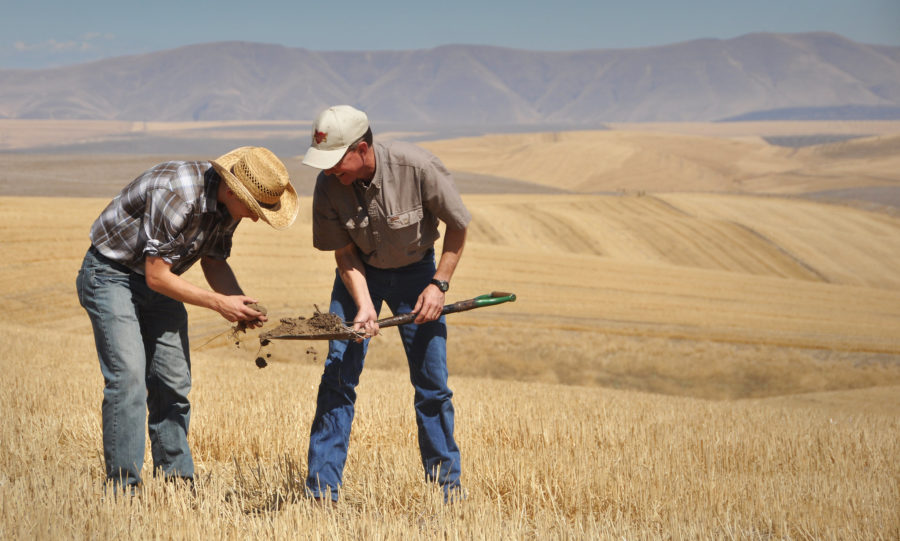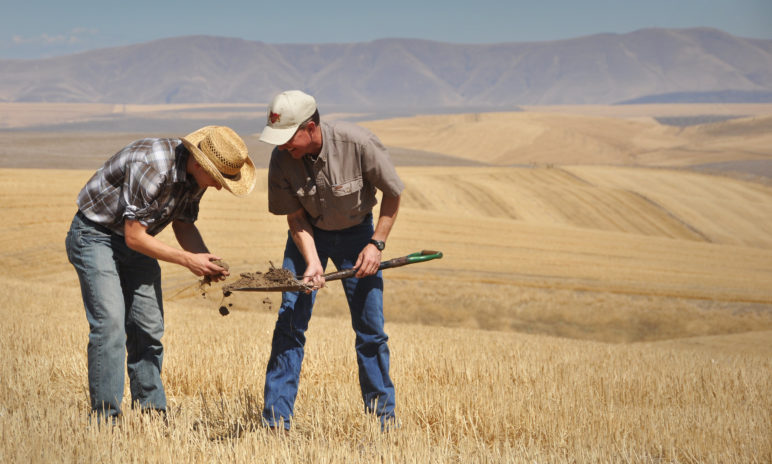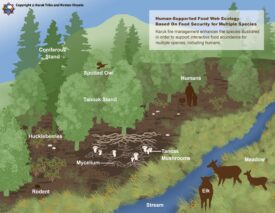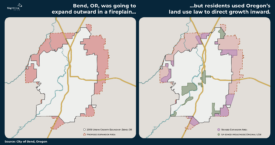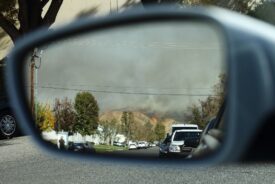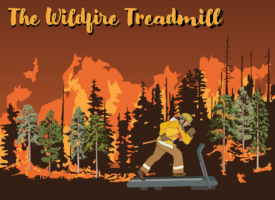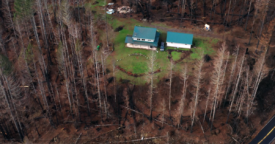Farmers in the Pacific Northwest are already experiencing climate change: warmer temperatures, drier summers, and more severe storms are just a few of the effects so far—and more erratic weather is on the way. Producers will have to adapt to these new weather patterns. How they do so will have big consequences for farmers’ livelihoods, the resilience of our food system, and the health of the soil we rely on.
But how will they decide what to do? Who will they turn to for advice in adapting to a changing climate?
To answer those questions, researchers at the University of Idaho asked wheat producers across the Inland Pacific Northwest who they trust for information about farming decisions. It turns out that farmers trust other farmers most. Nearly 85 percent of respondents said they believe other producers are trustworthy sources of information. That was higher than trust in agribusiness or independent crop advisors, university extension agents, conservation districts, or the Natural Resource Conservation Service.
The finding isn’t surprising. Studies of food producers across the globe concur: peers have an enormous influence on everything from crop selection, pesticide choices, and growing techniques, to marketing strategies and the decision to participate in government-sponsored programs. In some cases, a producer’s peers are the greatest predictive factor of farm revenue.
Harnessing the power of peers could be key to building a more climate-resilient food system as well as to reducing on-farm emissions. The Farmer-to-Farmer case study project, a collaboration between three Cascadian research universities, is one effort to do this. The project profiles farmers and ranchers across Idaho, Oregon, and Washington on the leading edge of sustainable farming. They are tilling less, pioneering new irrigation practices, and experimenting with new grazing strategies to adapt to water shortages; diversifying crop rotations to combat weeds; and using new fertilizing techniques to cut costs and protect water quality. So far the project covers 11 case studies, each of which includes a written report and a short video interview with the producer. Five more profiles are in the works.
Each producer is in a unique part of the region, growing different crops—from wheat to potatoes to hay—and dealing with varied precipitation, heat, and other stressors. By sharing their experiences, these early adopters provide trusted information to other farmers like them searching for ways to deal with the increasingly harsh weather.
As we move into a future with unprecedented weather challenges, this is a critical time to get good information into the hands of our farmers, ranchers, and foresters. The best way to do this is by seeking out trailblazers—those producers willing to road test climate-savvy techniques—and giving them a megaphone.
Margaret Morales is Sightline’s Farms and Forests researcher. She earned her Master’s from The University of British Columbia’s Institute for Resources, Environment, and Sustainability where she was a Bridge Fellow focusing on the connections between public health and the environment. She received her Bachelor’s degree from Duke University in Environmental Science and Policy, and English. To get in touch with Margaret for an interview or other requests, contact Sightline Communications Manager Anne Christnovich.

